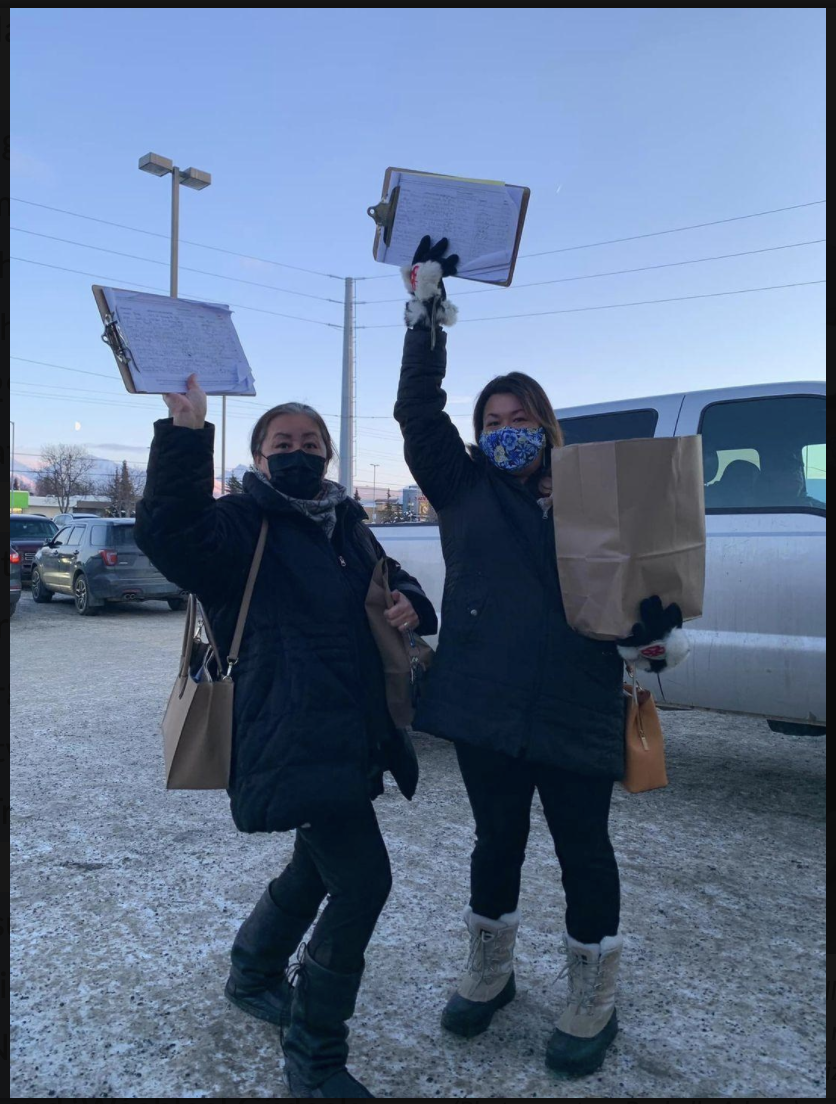
- Details
- By Lyndsey Brollini - KTOO
This story was originally published by KNBA on December 13, 2021. Read the original story at KNBA. Republished by Native News Online with permission.
Sponsors of a Tribal recognition initiative will speak Tuesday at the Alaska Federation of Natives annual convention.
In October, the group Alaskans for Better Government began collecting signatures for the initiative. If passed, it would require the state of Alaska to recognize all 229 federally recognized Tribes in the state.
The group says that the goal of the initiative is to create a permanent government-to-government relationship between the state and Alaska Native Tribes.
The ballot measure is co-sponsored by Chalyee Éesh Richard Peterson, Kaaxúxgu Joe Nelson, La quen náay Liz Medicine Crow and ‘Wáahlaal Gíidaak Barbara Blake.
So far more than a third of the 36,000 signatures needed for the initiative to make it onto next year’s ballot have been collected.
It’s not the first time that people have tried to get state Tribal recognition.
Earlier this year, Representative Tiffany Zulkosky introduced a Tribal recognition bill which passed in the House, but stalled in the Senate. A similar bill was also introduced in 2020.
Correction: A previous version of a photo caption incorrectly stated Rochelle Adams and Angela Peter-Mayo's role in the petition. This story has been updated to correct the error.
More Stories Like This
NCAI Passes Two Emergency Resolutions on Immigration Enforcement ActivitiesChickasaw Lighthorse Police Officer named Indian Country Law Enforcement Officer of the Year
Indian Gaming Association Rallies Broad Coalition Against Sports Event Contracts It Calls Illegal Threat to Tribal Sovereignty
Navajo Resources and Development Committee Issues Notice on Livestock Inspection Requirements
American Prairie, Tribal Coalition Files Protest Over Rescinded Grazing Rights
Help us defend tribal sovereignty.
At Native News Online, our mission is rooted in telling the stories that strengthen sovereignty and uplift Indigenous voices — not just at year’s end, but every single day.
Because of your generosity last year, we were able to keep our reporters on the ground in tribal communities, at national gatherings and in the halls of Congress — covering the issues that matter most to Indian Country: sovereignty, culture, education, health and economic opportunity.
That support sustained us through a tough year in 2025. Now, as we look to the year ahead, we need your help right now to ensure warrior journalism remains strong — reporting that defends tribal sovereignty, amplifies Native truth, and holds power accountable.
 The stakes couldn't be higher. Your support keeps Native voices heard, Native stories told and Native sovereignty defended.
The stakes couldn't be higher. Your support keeps Native voices heard, Native stories told and Native sovereignty defended.
Stand with Warrior Journalism today.
Levi Rickert (Potawatomi), Editor & Publisher
